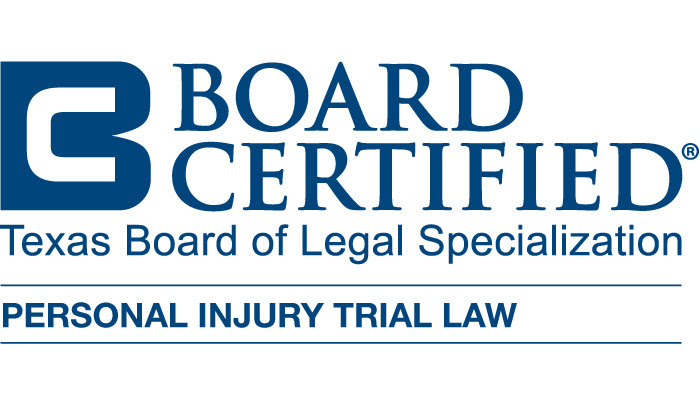Social media has become an integral part of daily life for many people. From sharing updates about personal achievements to posting photos from a recent vacation, individuals use social media platforms to stay connected with friends, family, and the broader community. However, when it comes to a Texas car accident case, using social media can significantly impact the outcome of your claim. While it may be tempting to post about your experiences following an accident, it is essential to understand how such actions can affect your ability to receive compensation for your injuries. This page explores the various ways social media can influence your Texas car accident case and why it is important to exercise caution when posting anything online. Willumsen Law Firm, P.C. can help car accident victims by providing experienced legal representation to secure the compensation they deserve for their injuries, property damage, and other losses.


The Role of Social Media in Legal Proceedings
Social media platforms like Facebook, Instagram, Twitter, and TikTok provide a space where individuals can freely share their thoughts, activities, and interactions with the world. However, what you may not realize is that insurance companies, opposing attorneys, and other parties involved in a car accident case may scrutinize your social media activity. Anything posted online, including pictures, videos, and status updates, can be used as evidence in court to undermine your claims. This is especially true in personal injury cases, where your credibility and the severity of your injuries may be questioned.
When you file a personal injury claim after a car accident in Texas, the insurance company or defense attorney may conduct an investigation to find evidence that can be used to reduce or deny your compensation. Social media provides them with a treasure trove of information, as posts can sometimes contradict the statements made in legal documents or medical reports. Even if your social media accounts are private, there are ways in which opposing parties may still gain access to your online activity.
For instance, imagine you have filed a claim for a back injury sustained in a car accident. You have provided medical records and testimony indicating that the injury has significantly limited your physical abilities and caused you pain. However, if you post a picture of yourself participating in a physical activity such as hiking or playing sports, the insurance company might argue that your injury is not as severe as you claim. Such discrepancies can lead to a reduction in compensation or a complete dismissal of your case.
My focus is to give a voice to families who have suffered a wrongful death or a serious injury to a family member caused by an 18-Wheeler, commercial truck, or a drunk driver. Contact us today, we can help you.Helping Injury Victims for Over 25 Years
Understanding Privacy Settings is Not Enough
Many individuals mistakenly believe that by adjusting their privacy settings on social media, they are fully protected from scrutiny. While setting your accounts to private can limit who can view your posts, it does not entirely safeguard your online content from being used against you in a legal case. Courts may issue subpoenas to access your private social media activity, and once your posts are obtained, they can become part of the public record in a lawsuit.
Moreover, even if your accounts are private, the people you are connected with may not have the same privacy settings. For example, if a friend tags you in a photo or shares a post that includes you, that content could still be publicly accessible. In some instances, opposing parties may attempt to access your social media through fake profiles or by gaining information from mutual connections. As a result, maintaining an active presence on social media after a car accident can pose significant risks to your legal case, even with strong privacy settings in place.
How Innocent Posts Can Be Misinterpreted
One of the biggest dangers of social media during a car accident case is how easily your posts can be taken out of context. Something as simple as a photo of you smiling at a family gathering could be used to suggest that you are not in as much pain as you claim. Similarly, a status update expressing relief or optimism about your recovery could be misconstrued as evidence that your injuries are not as severe or long-lasting as described in your medical records.
In addition to photos and status updates, comments on your posts or the posts of others can also be used as evidence. If you mention in a comment that you are feeling better or planning a vacation, this information could be interpreted as proof that you are not as physically or emotionally affected by the accident as you initially stated. Even a casual remark about daily activities could be misinterpreted to contradict your legal claims.
It is important to remember that insurance companies and defense attorneys are skilled at finding ways to minimize the compensation owed to accident victims. They may comb through your social media presence looking for any inconsistencies between your online activity and your legal claims. Even posts that seem entirely unrelated to the accident can be twisted to serve the opposing party’s interests.
The Impact of Social Media on Emotional Distress Claims
Beyond physical injuries, social media can also affect claims for emotional distress following a car accident. If you are seeking compensation for anxiety, depression, or other emotional challenges resulting from the accident, your social media activity may be used to challenge the validity of these claims. For example, if you are posting upbeat, cheerful content or participating in social events, the opposing party may argue that your emotional distress is not as severe as you claim.
While it is natural to try to maintain a positive outlook in difficult times, these efforts can sometimes backfire in a legal context. Opposing parties may view your social media activity as evidence that you are exaggerating or fabricating your emotional distress, which can severely undermine your case.
It is also worth noting that comments from friends and family members can inadvertently harm your emotional distress claim. If someone comments on a post saying something like “You seem to be handling everything so well” or “I’m glad you’re doing okay,” these statements could be used to cast doubt on the severity of your emotional injuries.
Related Videos
Choosing a Personal Injury Attorney
Types of Compensation in a Truck Accident Claim
What You Can Do to Protect Your Case
In light of the potential impact that social media can have on your Texas car accident case, it is crucial to take steps to protect yourself. While it may be challenging to abstain from social media entirely, it is important to be mindful of what you post and how it could be perceived by others. Consider avoiding any posts about the accident, your injuries, or your recovery, and refrain from sharing updates that could be misinterpreted.
Additionally, you may want to inform your friends and family members about your ongoing legal case and ask them to avoid tagging you in posts or sharing content related to your accident. While this may feel like an inconvenience, it can help ensure that your case remains strong and that no unnecessary evidence is introduced that could harm your claim.
Consulting with an attorney who understands the nuances of social media’s role in car accident cases is another important step. An experienced lawyer can provide guidance on how to navigate social media during the legal process and help you avoid potential pitfalls that could jeopardize your case. They can also assist in identifying any inappropriate attempts by the opposing party to access your private social media information.
The Importance of Legal Representation
Social media’s influence on car accident cases is just one of the many complexities involved in personal injury claims. Navigating the legal system can be overwhelming, particularly when facing opposition from insurance companies and defense attorneys. Having legal representation is essential to ensuring that your rights are protected and that you receive the compensation you deserve.
At Willumsen Law Firm, P.C., we understand the challenges that car accident victims face, especially in the digital age where social media can easily complicate your case. Our experienced legal team is here to guide you through the legal process, providing the support and representation you need to achieve the best possible outcome. Whether you are concerned about the impact of your social media presence or have other questions about your case, we are here to help.
If you have been involved in a car accident in Texas and are worried about how social media might affect your case, contact Willumsen Law Firm, P.C. today. Our knowledgeable attorneys are ready to fight for your rights and help you navigate the legal process with confidence. We are committed to protecting your interests and ensuring that you receive the compensation you deserve. Reach out to us for a consultation, and let us help you build a strong case for your future.



